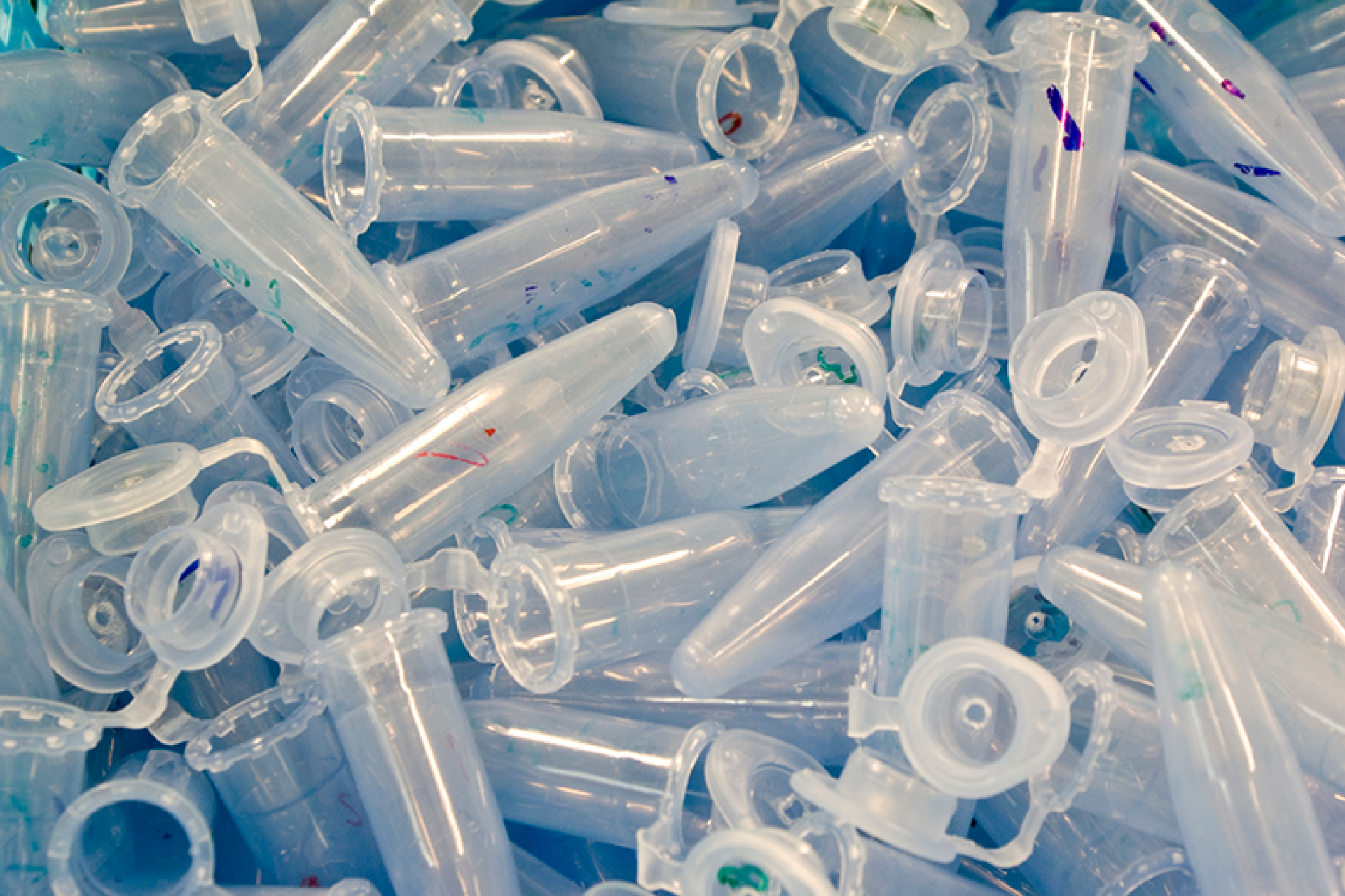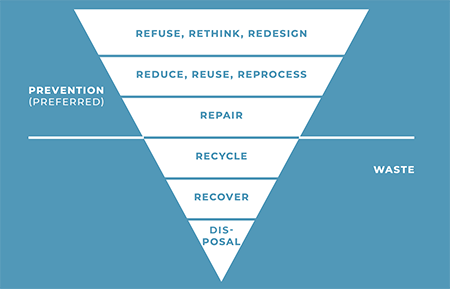Since the 1990s, Health Care Without Harm has worked with the health care sector to address the use of toxic plastics, such as PVC, monomers like bisphenol A, and hazardous chemicals like phthalates which are endocrine disruptors and should be eliminated in health care plastics wherever possible.
Alongside our global network, we have produced resources, including guidance documents, white papers, fact sheets, and specifications to assist the health sector in identifying problematic plastics and moving toward safer alternatives.
We also partner with a network of hospitals, assisting them in improving their practices and mobilizing health care professionals as advocates for sustainable, non-toxic, and climate-smart approaches.
Health Care Without Harm promotes a waste hierarchy focused on redesigning, rethinking, and eliminating unnecessary products as a critical first step in addressing the plastics crisis. This framework calls for the following:
- Elimination of all problematic and unnecessary plastic items.
- Products must be non-toxic to avoid continually recirculating hazardous chemicals through the economy and the environment.
- Innovation to ensure that the plastics are reusable, recyclable, or compostable.
- Promote plastics that are being circulated in the economy and out of the environment for as long as possible.
- Plastics that cause the most significant environmental and human health damage should be phased out.
- Single-use plastics should be avoided.
- Polymers should be able to be recycled to a high standard using local infrastructure.
- Packaging reduction and prioritizing reusable schemes are crucial.
Image: Health Care Without Harm Europe (2021) Measuring and reducing plastics in the healthcare sector
Health Care Without Harm and its partners promote safe recycling as a central part of sustainable health care waste management. After the waste stream has been reduced to the extent possible, and items are reused, as much as one-third of the remaining waste can be recycled, and another third is organic, which can be biodigested, leaving only one-third needing to be landfilled.
Health Care Without Harm’s market transformation work is devoted to leveraging the sector’s aggregate buying power to accelerate the movement of the health care supply chain towards more sustainable and climate-friendly products.
Some of our activities:
- Facilitating the adoption of the sustainable gloves criteria, including assisting pilots in different regions, and identifying global agency opportunities for glove criteria adoption in order to build demand for safer and more sustainable exam and surgical gloves.
- Using plastic procurement and waste audits to identify target products for reduction and elimination.
- Addressing priority plastics for elimination and identifying safer alternatives.
Health Care Without Harm is an observer of the Intergovernmental Negotiating Committee (INC) on Plastic Pollution. Health must remain a central part of the discussion as the world develops and adopts an international legally binding instrument on plastic pollution.
As countries and international organizations are working towards a new plastics treaty, it is essential that there must be NO exemptions for plastics in health care.
The health care sector—including ministries, hospitals, manufacturers, suppliers, health professionals, and others—can take key actions to solve the plastics crisis in the sector.
Some of the priority actions:
- Reducing reusing, and redesigning health care plastics.
- Enabling a circular economy for plastics.
- Achieving environmentally sound management and recycling of plastic waste.
- Elevating the voices of health professionals as trusted messengers.

